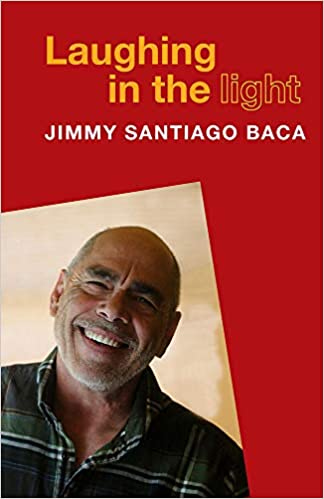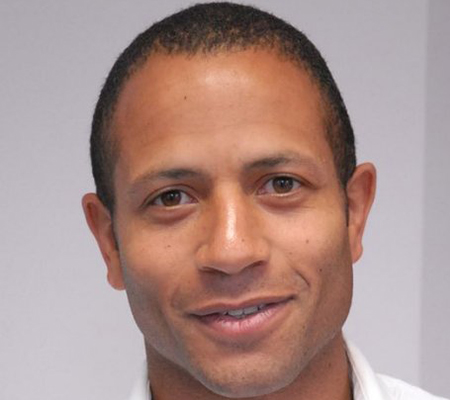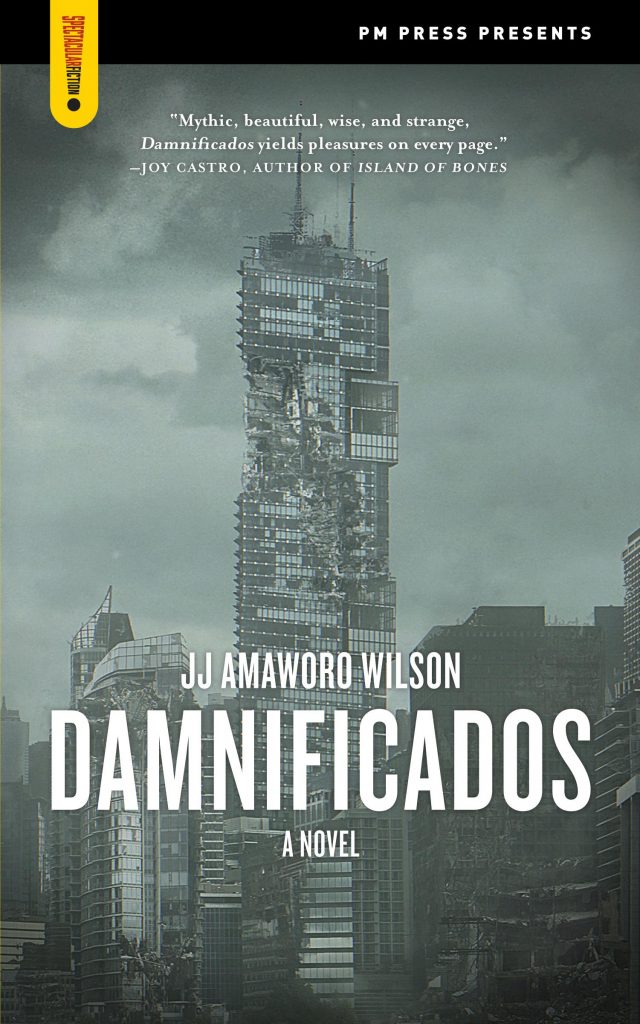By JJ Amaworo Wilson

(Re)birth: Jimmy finds a new meaning for the word “sentence”
When Jimmy Santiago Baca was in his early twenties and serving time in a high-security prison, a Good Samaritan from the outside world—Henry Gould—wrote to him. Gould ran a soup kitchen. His legs had been blown off during World War II, but his heart was pure. Jimmy began to write regularly. Gould sent a dictionary and Jimmy sent poems.
Eventually, Gould broke off the correspondence; he was a Christian Evangelical and Jimmy, surrounded by murderers and rapists, could see no sign of God. But by then Jimmy was on his way. He wrote from sun-up to sundown. He sold poems to inmates in exchange for cigarettes. He got published. When his time was up, the sadistic prison warden refused to grant his freedom. Letters poured in from editors at national journals and the outcry got him released.
Tightrope
Jimmy walks a tightrope. A high-wire act. That high up, there’s nothing but euphoria and the knowledge that you’re one misstep from the abyss. And Jimmy’s always looking down. He’s a mass of contradictions and he knows it: the penniless poet, the party animal. On page 102 of his new book of autobiographical essays, Laughing in the Light, he writes, “I was not into accumulating goods, no property or money or savings.” Two paragraphs later, “whatever I touched resulted in success … beautiful girlfriend, book contract, movie deal, new house, new cars.” On page 114 he was “[n]ear starvation.” In the next paragraph he goes to Taos and rents a rubber raft.
He’s a hell-raiser and a nature-lover at the same time, his nose either poised above a line of coke or in the Buddhist works of Thich Nhat Hanh, the guru’s guru. He tells us about his readings at packed university halls, his five-figure fees, the tears his audience sheds for him. And in the same breath he says he’s nothing. In the final chapter he comes clean: “parts of me dueled between death and life.” Life won.
El Profesor
He goes back to prison as a teacher. His workshops are packed. The inmates see the light, become writers, thinkers. Their lives gain purpose. When they get out, they’ll return to their wives and kids, begin afresh. Heck, even the prison guards start showing up.
Months later, the workshops have ended and he asks his assistant to contact the former students who have now served their terms. He wants to reconnect, see how they’re doing. “That won’t be possible,” says his assistant. Why not? “Most of them are dead, overdosed.” Talk about a dying fall.
Pinche Gringos
There are several antagonists in Laughing in the Light. We don’t have addresses for all of them, but one currently lives at 1600 Pennsylvania Avenue, Washington, D.C. Others include sadistic prison wardens, sellout poets, conquistadores, pioneer-settlers, greedy ex-wives, and oil company lobbyists. Most are rich, white males: pinche gringos. Jimmy’s poetic awakening also brings a political awakening. Social justice is a potent theme—perhaps the potent theme—in the book, and for Jimmy, poetry possesses redemptive power: “Poets are like the clean-up crew. We come in after the mess has been made.”
Outlaw
He says he’s an outsider. It’s true that he is, but most writers are. All of us chose the road less traveled. And he’s certainly not the only jailbird-scribbler; many have taken a walk on the Wilde side. Jean Genet was a thief. Jimmy Boyle was a Glasgow gangster. Chester Himes was an armed robber. Brendan Behan did three years for getting caught with IRA explosives, and wrote Borstal Boy as a result. In any case, there aren’t as many sellouts as Jimmy thinks, partly because poetry doesn’t sell. As for being an outsider, another Jimmy (Baldwin) said it best. When asked about the hell of being black, Jewish and gay in America, Baldwin replied, “It’s a gift.” Our struggles make us who we are.
Crack (no, not that crack)
“There is a crack in all of us. It’s how the light gets in” (Leonard Cohen). Jimmy’s childhood was marked by abandonment (mother), alcohol (father), violence (father, step-father), drugs (everyone), racism (society). He went from orphanage to juvie to jail to prison without passing Go, and he saw some of the worst things a human being can see. From these beginnings, he became a bestselling, award-winning author, a Hollywood writer and producer, and a man full of love. There is a crack in him, for sure. But genius is more often found in a cracked pot than a whole one.
Laughing in the Light is a vivid, rollicking book, part-diatribe, part-memoir. With all his flaws and in all his glory, Jimmy fascinates and charms in equal measure. May the last laugh be his.
JJ Amaworo Wilson is a German-born, British-educated debut novelist. Based in the U.S., he has lived in 9 countries and visited 60. He is a prizewinning author of over 20 books about language and language learning. Damnificados is his first major fiction work. His short fiction has been published by Penguin, Johns Hopkins University Press, and myriad literary magazines in England and the U.S.




